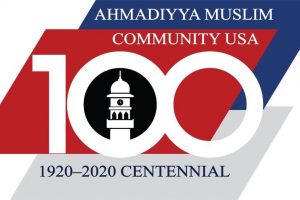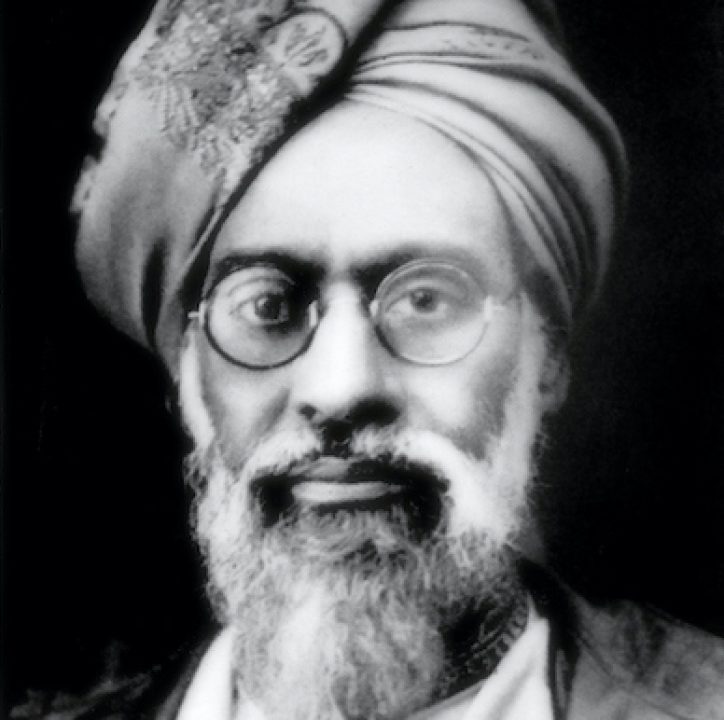There should be no compulsion in religion. Surely, right has become distinct from wrong…. (Holy Qur’an, Ch.2:V.257)
In July, America celebrated its 234th year as a nation. As members of the Ahmadiyya Muslim Community, we proudly joined in this celebration. For some Americans, a showing of loyalty by American Muslims might come as a bit of a surprise. With America mired in two wars with Muslim majority nations (Iraq and Afghanistan), and recent Gallup polls showing an unprecedented level of discrimination against Muslims of America, it would appear difficult for American Muslims to take pride in the country they live in.
Yet despite all the polls and negative media attention paid to Islam in America, there probably is not a better time in our history to be proud to be an American Muslim. Consider for a moment the state of religious freedom for Muslims in Europe over the past few months.
Last November, 57.5% of all voters in Switzerland supported a constitutional amendment banning the construction of any new minarets (an Islamic symbol found on Mosques).
In June in the Netherlands, the anti-Islam Freedom Party of MP Geert Wilders won 23 seats in Parliament. Wilders has publicly demanded that the Qur’an be outlawed and that Muslim women who wear headscarves be taxed.
In July, the French parliament approved a ban of the burqa (or full Islamic veil) by a vote of 336 to 1. Support for a ban on the burqa is now widespread across Europe. For American Muslims, these headlines emanating out of Europe may come as somewhat of a shock. Compared to European Muslims, American Muslims appear to be progressing much better in terms of upholding religious freedom and liberty for people.
US President Barack Obama recognised this very fact in his speech to the Muslim world in Cairo last year when he said:
“Freedom in America is indivisible from the freedom to practise one’s religion. That is why there is a mosque in every state of our union, and over 1200 mosques within our borders. That is why the U.S. government has gone to court to protect the right of women and girls to wear the hijab, and to punish those who would deny it.”
No state in America has laws that ban minarets, headscarves, or any other kind of Islamic custom or practice of the kind France, Switzerland and other European nations seek to implement. In 2004, Oklahoma passed a law seeking to ban the wearing of headscarves in public schools, but a federal court ruled that it was unconstitutional. In April this year, Oregon ended an 87-year-old ban on teachers wearing headscarves in schools.
What is it about America that enables American Muslims to exercise their faith more freely than anywhere else in the world?
America’s early founding reflects a deep commitment to religious freedom. Most of the European settlers who came to North America in the Seventeenth Century fled Europe to seek religious freedom. The early immigrants to America – the Puritans – sought desperately to practise their own brand of Christianity. They founded Massachusetts as the “new Israel” – a new commonwealth based on a covenant between God and his people.
But the Puritanical vision of a “holy society” was quickly met with resistance. The first and most famous dissenter, Roger Williams, himself a Puritan minister, disagreed with the state interfering with religion. He put forth the first American case for freedom of conscience for all. He founded Rhode Island – the first American colony to grant the freedom of conscience to people of all faiths.
The Rhode Island experiment slowly grew strength and momentum in the rest of early America. For example, William Penn, a Quaker, famously founded the colony of Pennsylvania in the Eighteenth Century as a “holy experiment” to preserve religious liberty for all.
In 1776, the Declaration of Independence established America as a nation and declared emphatically the principle of equality for all people. But even the Declaration of Independence did not explicitly refer to religious liberty or religious tolerance.
For the next eleven years, America’s founding fathers wrestled with the idea of religious liberty and its inclusion in the US Constitution. James Madison, in particular set forth a powerful defence of religious freedom as an inalienable right. His ideas formed the basis for the First Amendment to the US Constitution, ratified in 1791.
On 14 November, 1785, the citizens of Chesterfield County signed an unprecedented and ground-breaking petition for religious freedom, which they submitted to the Virginia State Assembly. The Library of Congress has preserved this petition in its archives and it reads:
‘Let Jews, Mehometans and Christians of every denomination enjoy religious liberty… … It is men’s labour in our Manufactories, their services by sea and land that aggrandize our Country and not their creeds. Chain your citizens to the state by their Interest. Let Jews, Mehometans, and Christians of every denomination find their advantage in living under your laws.’
These sentiments ultimately found their way to the Bill of Rights just a few years later. The first words of the Bill of Rights consist of the two religion clauses of the First Amendment: ‘Congress shall make no law respecting an establishment of religion, or prohibiting the free exercise thereof…’ Taken together, these two clauses safeguard religious liberty by protecting religious beliefs from government interference or control.
220 years later, the religion clauses of the First Amendment remain intact and continue to safeguard religious beliefs from government interference or unlawful restrictions.
The concept of religious freedom in America has a rich history. But the essential ingredients of this concept are definitely not new. They are inspired in large part by the famous political writings of John Locke and Jean-Jacques Rousseau.
And they strongly resonate with the Islamic concept of religious freedom. In fact, Islam advanced the concept of religious freedom over
1000 years before America was founded.
Let me now turn to the Islamic concept of religious freedom.
The starting point for this analysis must begin with the verse:
There should be no compulsion in religion. Surely right has become distinct from wrong… (Ch2:V.257)
Among all other revealed texts, only the Qur’an stresses religious freedom in such unambiguous terms. In Islam, compulsion is incompatible with religion. Faith is an individual concern and commitment; it is a voluntary act borne out of conviction and freedom. Believing Muslims should not compel anyone to believe in Islam because they have earned no such right. All people must be permitted to find the truth through their own path.
Elsewhere, in the Qur’an, we read:
And if thy Lord had enforced His will, surely, all who are on the earth would have believed together. Wilt thou, then, force men to become believers? (Ch.10:V.100)
This verse demonstrates that religious freedom is part of Allah’s design in Islam. Indeed, Allah admonishes Muslims not to use force in matters of faith. Forced faith is no faith at all.
Finally, an entire chapter of the Qur’an, Surah Al-Kafirun (Ch.109), specifies the prescribed conduct of Muslims with non-believers. Allah demands in this chapter that believers declare emphatically that they will not force anyone else to believe: For you your religion, for me my religion. Again, this is a strong and unambiguous proof of religious tolerance in Islam.
These Qur’anic verses are not just theoretical pronouncements. They form the basis for true Islamic governance and protection of religious freedom. Indeed, the Prophet of Islam, Muhammad(saw), cherished these Qur’anic pro-nouncements and practically enforced them throughout his life.
The Prophet Muhammad(saw) actively promoted peace, tolerance and compassion for all non-Muslim minorities living in Arabia. He did not simply demand religious tolerance of his followers; his Sunnah (Practice) was to provide legal and constitutional protections for religious minorities.
This is perhaps best illustrated by two historic documents prepared by Prophet Muhammad(saw).
The first document is the Charter of Madinah written in 622 AD – a formal agreement between Prophet Muhammad(saw) and all of the significant tribes and families of Madinah, including Muslims, Jews and non-Muslim Arabs. Many scholars refer to this document as the first ever written constitution of a nation-state. The Charter of Madinah pre-dated the English Magna Carta by almost six centuries. It was executed and implemented for 10 years (622-632 AD) and applied to 10,000 citizens living in Madinah at that time. Remarkably 45% of the total population in Madinah consisted of non-Muslim Arabs, 40% consisted of Jewish persons, and only 15% consisted of Muslims. These numbers were recorded by Prophet Muhammad(saw) himself through a census that he commissioned. In others words, Prophet Muhammad(saw) penned the Charter of Madinah as a minority sovereign. His express goal was to govern a multi-religious pluralistic society.
The Charter consists of 47 clauses which set forth the formation of a sovereign nation-state with a common citizenship for all communities. The Charter protects fundamental human rights for all citizens, including equality, cooperation, freedom of conscience and freedom of religion. Clause 25 specifically states that Jews and non-Muslim Arabs are entitled to practise their own faith without any restrictions. In short, the Charter of Madinah was the first document in history to establish religious freedom as a fundamental constitutional right.
The Prophet Muhammad(saw)’s commitment to religious freedom did not just stop with the Charter of Madinah.
With Islam’s rising influence in Arabia by 626 A.D., Jewish and Christian tribes endured severe struggles with certain Muslim forces near Madinah. The Prophet Muhammad(saw) sent a series of letters to various kings surrounding the Arabian peninsula declaring his intention for peace and cooperation. One such letter was written to the monks of the Saint Catherine Monastery of Mount Sinai in 628 A.D. and known today as the “Charter of Privileges.”
The letter reads:
‘This is a message from Muhammad, son of Abdullah, as a covenant to those who adopt Christianity, near and far, we are with them. Verily I, the servants, the helpers, and my followers defend them, because Christians are my citizens; and by Allah! I hold out against anything that displeases them. No compulsion is to be on them. Neither are their judges to be removed from their jobs nor their monks from their monasteries. No one is to destroy a house of their religion, to damage it, or to carry anything from it to the Muslims’ houses. Should anyone take any of these, he would harm God’s covenant and disobey His Prophet. Verily, they are my allies and have my secure charter against all that they hate. No one is to force them to travel or to oblige them to fight. The Muslims are to fight for them. If a female Christian is married to a Muslim, it is not to take place without her approval. She is not to be prevented from visiting her church to pray. Their churches are to be respected. They are neither to be prevented from repairing them nor uphold the sacredness of their covenants. No one of the nation of (Muslims) is to disobey the covenant till the Last Day (end of the world).’
The Western Islamic scholar, Marmaduke Pickthall, comments on this letter as follows:
“The Charter which Muhammad granted to the Christian monks of Sinai is a living document. If you read it, you will see that it breathes not only goodwill, but also actual love. He gave to the Jews of Madinah, so long as they were faithful to him, precisely the same treatment as to any Muslims. He never was aggressive against any man or class of men . . . The story of his reception of Christian and Zoroastrian visitors is on record. There is not a trace of religious intolerance in any of this.’
The Saint Catherine Monastery at Mount Sinai, which is now in present day Egypt, has been designated by UNESCO as a “World Heritage Site” and is considered to be the oldest active Christian monastery in the world. In fact, the official website of the Saint Catherine Monastery at Mount Sinai proudly commemorates Prophet Muhammad(saw)’s letter of protection.
The original version of the letter can be found at the royal treasury in Constantinople in Turkey. A copy is preserved on display at Mount Sinai – a discovery mentioned by the Fourth Khalifa of the Promised Messiah(as), Hadhrat Mirza Tahir Ahmad(rh), in his various writings about Prophet Muhammad(saw). To this day, the Saint Catherine monks continue to practise their faith without restriction based on the protections granted to them by the Prophet Muhammad(saw) over 1400 years ago. And the entire world stands as a witness to Prophet Muhammad(saw)’s sublime act of religious tolerance!
The United States Constitution and Islam demonstrate a similar approach to religious freedom. It is an approach grounded in absolute freedom of conscience and belief, the free exercise of religion for all people, freedom from state control of religion and mutual respect, cooperation and peace.
What a tragic irony that much of the Islamic world has lost sight of Islam’s true and essential teachings concerning religious freedom.
Countries such as Indonesia, Egypt and Pakistan all currently have laws that suffocate the rights of religious minorities.
In Lahore, on 28 May 2010, the world witnessed a brutal crime against humanity. Armed gunmen massacred 86 members of the peace-loving Ahmadiyya Muslim Community and injured hundreds more. But this was not a random act of religious violence in Pakistan. This was a direct by-product of decades of state-sponsored institutionalised persecution of religious minorities. Pakistan is the only Muslim country to explicitly define who is or who is not a “Muslim” for purposes of the law. It is the only Muslim country to have a constitutional amendment that denies the right of a minority Muslim community to call itself “Muslim.” It is the only Muslim country to criminalise fundamental religious practices by punishment of death. It is the only Muslim country to require its passport applicants to declare a minority community to be non-Muslim and its Founder, God forbid, an imposter.
How would the Prophet of Islam, Muhammad(saw), react to this state of affairs? Would he even recognise Pakistan as an Islamic nation? What would he say to the so-called Muslims who sent teenagers to Lahore to bomb hundreds of worshipers attending the Friday prayers; to the so-called Muslims who burned alive eleven Christians in Gojra last year; or to the so-called Muslims who bombed a Sufi religious shrine in Lahore last month? The same Prophet Muhammad(saw)’s life was spent in vigorous defence of the oppressed, the orphans and the minorities; the same Prophet Muhammad(saw) gave refuge to a Christian delegation from Najran at his own mosque in Madinah; the same Prophet Muhammad(saw) championed the constitutional rights of Jews and non-Muslim Arabs and the same Prophet Muhammad(saw) said that differences of opinion are a blessing for society. When will Pakistan heed the example of the founder of Islam?
What are the obligations of American Ahmadi Muslims? We are proud to be American. Whilst we may not agree with every decision taken by the government, we nonetheless profess loyalty to America and pledge to make every effort to support it because the Prophet Muhammad(saw) said that loving one’s nation is an important part of faith. We cherish and enjoy freedom of religion more than any other nation on earth. The United States Constitution permits fol-lowers of other religions to build places of worship and practise their faith freely, whilst certain Muslim countries only allow mosques to be built and Islam to be openly practised, whereas the Holy Prophet(saw) allowed religious freedom for all faiths. We are witnessing the erosion of religious freedom in the world. We witnessed our fellow Ahmadi Muslims massacred for practising their faith. But Allah will never let the sacrifices of the Ahmadi martyrs go to waste. Their memories are alive in all of us. We must step forward and safeguard the original teachings of Prophet Muhammad(saw). For we are the Muslims who believe in the Messiah, Hadhrat Mirza Ghulam Ahmad(as) of Qadian, who came to rescue Islam from the clutches of ignorance and militancy.
We believe in religious freedom for all people. We must not rest until the Islamic world rids itself of the laws that embolden those who kill the innocent and vulnerable. American Ahmadi Muslim youth have a special responsibility to not sit idle and watch atrocities such as the Lahore attacks to continue unabated. They must heed the words of Hadhrat Khalifatul Masih V(aba) and carry the torch of religious freedom to our leaders and lawmakers and demand a change in the Islamic world.




Add Comment